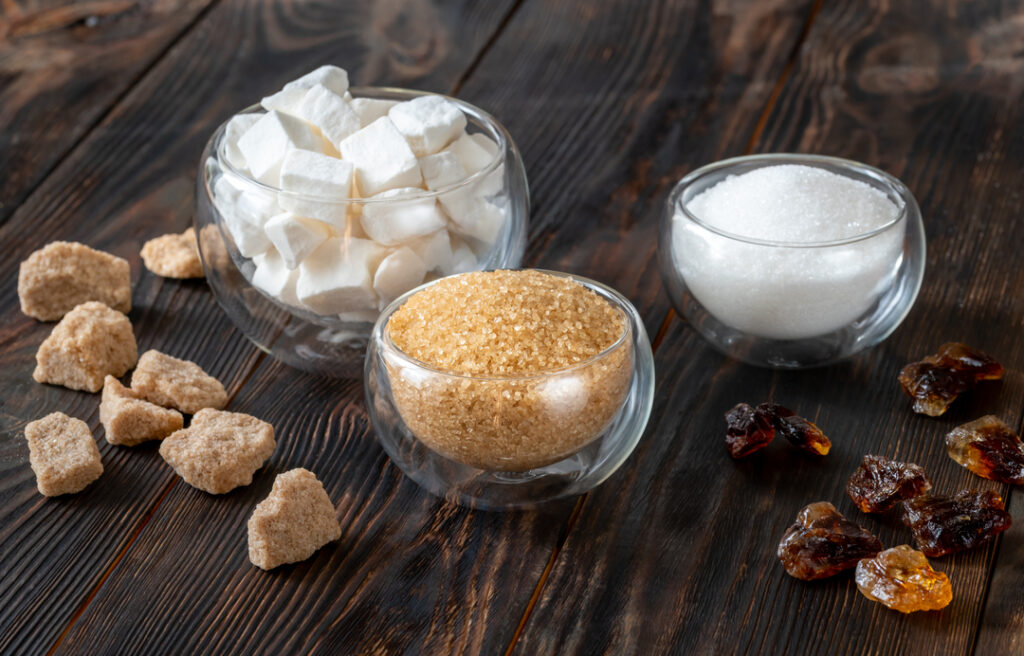In our quest for healthier eating habits, one of the most challenging hurdles to overcome is reducing sugar intake. While sugar can add a delightful sweetness to our foods and beverages, excessive consumption has been linked to various health issues, including obesity, diabetes, and heart disease. Fortunately, nature provides us with a variety of alternatives that can satisfy our sweet tooth without the negative health impacts. Let’s explore some natural alternatives to sugar that can help you maintain a healthier diet.
The Problem with Refined Sugar
Before diving into alternatives, it’s important to understand why refined sugar is problematic. Refined sugar, often called “empty calories,” provides energy but lacks essential nutrients. It can cause rapid spikes in blood sugar levels, leading to energy crashes and increased cravings. Over time, high sugar consumption can contribute to insulin resistance and inflammation in the body.
Natural Sugar Alternatives
Stevia
Stevia is a natural sweetener derived from the leaves of the Stevia rebaudiana plant. It’s virtually calorie-free and doesn’t raise blood sugar levels, making it an excellent option for those watching their calorie intake or managing diabetes. Stevia is much sweeter than sugar, so a little goes a long way. It’s available in liquid and powder forms and can be used in baking, though you may need to adjust recipes as it doesn’t provide the same bulk as sugar.
Monk Fruit Sweetener
Monk fruit sweetener is derived from the monk fruit, also known as luo han guo. Like stevia, it’s calorie-free and doesn’t impact blood sugar levels. Monk fruit sweetener has a clean, sweet taste without the bitter aftertaste that some people detect with stevia. It’s heat-stable, making it suitable for cooking and baking.
Xylitol
Xylitol is a sugar alcohol that occurs naturally in small amounts in many fruits and vegetables. It has about 40% fewer calories than sugar and doesn’t raise blood sugar levels as dramatically. Xylitol also has the added benefit of preventing tooth decay, which is why it’s often used in sugar-free gum. However, it can cause digestive discomfort in some people if consumed in large amounts.
Erythritol
Another sugar alcohol, erythritol, has even fewer calories than xylitol and is less likely to cause digestive issues. It’s about 70% as sweet as sugar and doesn’t affect blood sugar or insulin levels. Erythritol is heat-stable and can be used in baking, though it doesn’t brown or caramelize like sugar.
Date Syrup
Made from whole dates, date syrup is a natural sweetener that retains some of the fruit’s nutrients, including potassium, magnesium, and antioxidants. While it’s still high in sugar, it has a lower glycemic index than refined sugar, meaning it causes a slower rise in blood sugar levels. Date syrup can add a rich, caramel-like flavor to dishes.
Incorporating Natural Sweeteners into Your Diet
Transitioning to natural sweeteners can take some adjustment. Here are some tips to help you incorporate these alternatives into your diet:
- Start gradually: Replace a portion of the sugar in recipes with a natural alternative and gradually increase the substitution over time.
- Experiment with different sweeteners: Each natural sweetener has its unique taste and properties. Try different ones to find what works best for you.
- Adjust recipes: When baking, you may need to make adjustments as natural sweeteners can affect texture and moisture content differently than sugar.
- Read labels: Many products marketed as “sugar-free” may contain artificial sweeteners. Opt for products that use natural alternatives instead.
For those looking for convenient ways to satisfy sweet cravings while supporting overall health, consider trying power up gummies. These can provide a healthier alternative to traditional sugary snacks.
Beyond Sweeteners: Natural Ways to Add Sweetness
While natural sugar alternatives can be helpful, it’s also worth exploring ways to add sweetness to your diet without relying on sweeteners at all:
- Fresh fruits: Incorporate more fresh fruits into your diet. They provide natural sweetness along with fiber, vitamins, and minerals.
- Spices: Cinnamon, nutmeg, and vanilla can enhance the perception of sweetness without adding any sugar.
- Roasted vegetables: Roasting brings out the natural sweetness in vegetables like carrots, sweet potatoes, and beets.
For more ideas on incorporating naturally sweet foods into your diet, check out these cherry lemonade recipes that use fruit to provide natural sweetness.
The Importance of Moderation
While natural sugar alternatives can be part of a healthy diet, it’s important to remember that moderation is key. Even natural sweeteners should be consumed in limited quantities. The goal should be to gradually reduce your overall taste for sweetness, allowing you to appreciate the subtle, natural sweetness in whole foods.
Potential Side Effects
While natural sugar alternatives are generally safe, some people may experience side effects, particularly with sugar alcohols like xylitol and erythritol. These can include digestive discomfort, bloating, or diarrhea if consumed in large amounts. It’s always a good idea to introduce new foods or sweeteners gradually and pay attention to how your body responds.
Conclusion: A Balanced Approach to Sweetness
Reducing sugar intake is a positive step towards a healthier diet, and natural alternatives can be valuable tools in this process. However, it’s important to approach this change as part of a broader shift towards whole, nutrient-dense foods. By focusing on a balanced diet rich in fruits, vegetables, whole grains, and lean proteins, you can reduce your reliance on added sweeteners of any kind.
Remember, taste buds can be retrained over time. As you reduce your intake of sugary foods and incorporate more natural alternatives and whole foods, you may find that your cravings for sweet foods diminish. This can lead to a more balanced relationship with food and a greater appreciation for the subtle sweetness found in nature.
For more tips on creating a balanced, healthy diet, explore this guide on 10 ways to switch up your diet. By making small, consistent changes and being mindful of your sugar intake, you can work towards a healthier, more balanced diet that still satisfies your sweet tooth in moderation.





